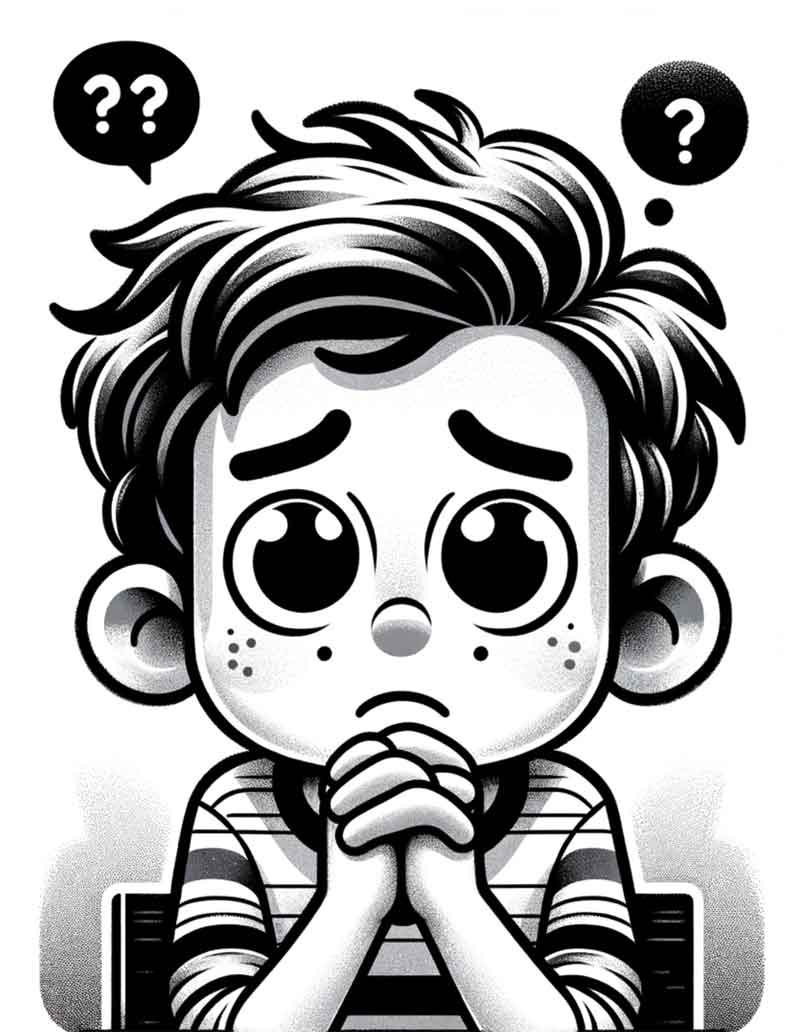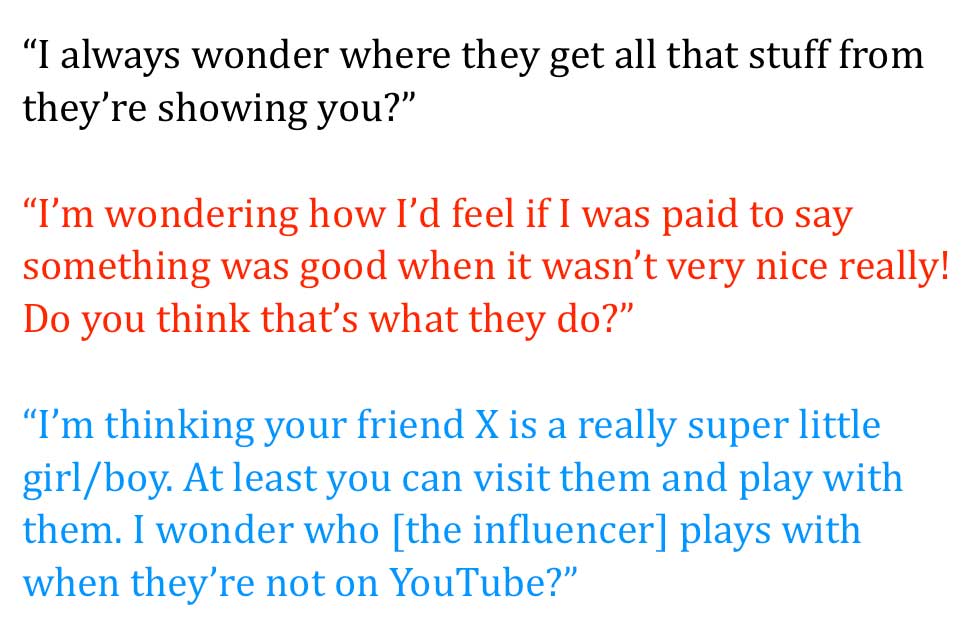Why is your child anxious about the future?
I think a lot of our children fear for their future now.
They have become seriously worried about
- climate change,
- destruction of the planet,
- the end of the world,
- repeating pandemics,
- all-out war spreading to their own country, and
- the possibility that there will be no job for them after school, even though they’ve barely got through junior school.
This can lead to despair.
Young teenagers may well get caught up in a spiral of despair, and this needs keeping an eye on. Hormonal changes make it easier for them to feel extremes of emotion.
But younger children don’t concentrate on their future in the same way. They naturally get caught up in the day-to-day things they do. So the fear and worry is likely to be an underlying anxiety about the world and their future – when it surfaces.
And right now, with a war in Ukraine, they may well have some underlying anxieties. Let's take a quick look at that aspect before moving on to fear of the future in general.
Fear stemming from the Russian invasion of Ukraine Feb-Dec 2022Everything I’ve written below is relevant here but it’s worth making a special point about this latest act of aggression by one country on another. The reason is that almost every year there are more ways children hear about bad world events. Whether they’re allowed on social media or not, most children do access it or at least hear from others who do. So in addition to a couple of years filled with a pandemic, disrupted schooling, messed-up relationships and lots of social isolation, they now have the prospect of a world war. With regard to how to deal with their anxiety, take into account everything below on this page but especially these extra tips that I'm adding now: 1 Your children are a little more prone to anxiety than they were before. Everyone has suffered but children more than most. And some of them will have lost loved ones, fallen into family poverty due to inflation and energy bills, or missed holidays and relaxation. Plus with strikes in all sectors in the UK, Christmas will seem a little different too. Allow for these added extras they're having to cope with. 2 Not all children talk. Some will exhibit regression or bad behaviour. Others will become “dizzy” and suddenly oddly full of life (a diversion tactic for their brains). Recognise it as anxiety. 3 You probably need to turn off daytime television and news bulletins and only catch up on the news at limited times when they’re not watching (or quietly on your phone). It’s far better you talk with them than let them see violent images and hear talk they don’t quite understand. 4 Answer questions without lying, as truthfully as the age of your child permits. BUT stay exactly within what they ask. Don’t go any further at all unless they pursue the topic themselves. They will only ask about the thing on their mind. Any further, and you may introduce something they hadn’t thought of that worries them even more. 5 According to how old your child is, ask them where they heard about whatever it is they’re asking about. This gives you time to consider if it’s skewed, and how it's skewed/false, and also time to think up the best answer that will suffice for now. It may also prompt you to warn other parents of the sources your (and their) children are accessing. 6 Older children (maybe years 5 and 6 who have been learning about WW2) can usefully look at a map and see which countries are where. This has the effect of externalising the worries to facts that lie outside of the child. Be sure to remind them that a) the world has pulled back from the brink a number of times before and may do so again and b) most normal people do not want war including the general populations in the countries involved. It’s a good starting point for conversations about settling things by talking and negotiating – skills they will need in the work place. 7 I wish I knew what point 7 was. As adults, we can only hope and trust. But in dealing with your child’s anxiety, please do bear in mind this site’s maxim: “Trust your instincts, use your judgement, protect the spirit of your child” – whatever grave doubts we ourselves have. Don’t let them pick up fear from us! There's a very useful, short YouTube video from Voice of America, in which parents (including both Ukrainian and Russian ones) living in America share how they're dealing with the war in Ukraine with their children of various ages – plus advice for all parents. Read on to see how to help your child with future fear in general. |

How does anxiety about the future show up?
You may have heard your child ask a question that seems out of the blue and takes you by surprise – something like:
- “Is the sun going to explode?”
- “What will happen when a bomb falls on our house?”
- “What’s the point of school when the world's going to end?”
- “What will happy to Kitty if we all die?”
- “I’ll never get a job. There’s no point in trying.”
These questions are not really out of the blue. They’ve been festering as anxiety for some time, but when your child is less occupied with other things, the worry bursts to the surface.
What has happened to make a child more anxious about the future?
The 2020-21 pandemic raised all sorts of other scary futures for our children. It happened like this:
- World War Two had been on the airwaves quite often due to the many anniversaries of important moments that were commemorated. So a world war was something they knew little bits about.
- Floods, earthquakes and terrorist atrocities had been, and still are, frequently mentioned. A child cannot assess likelihood and risk like adults can, so all of those are truly scary things that may still happen in future.
- And then something (the pandemic) that seemed like a world plague killed off millions and filled the news bulletins and our homes – first scarily and then politically. Not once in a while, but day in day out.
All this means there are few children today who have not wondered anxiously about their future. Of course, some will let it roll off them, like our demands to tidy their toys up do!
Others – maybe a sensitive child, or one who is younger, or one who has not taken part in appropriate discussions for their age – will have underlying worries.
And when the worries grow too large to manage, they become a cause of anxious symptoms. That’s when we first start to worry about them.
[Perhaps we should also worry about those who seem not to be affected by worries? That’s a different thought worth bearing in mind for another time. It can be high-functioning anxiety and looks like being a perfect child. I wrote about it eventually, here!]
Ways of dealing with anxiety about the future
The best course of action (according to the age of your child) is to encourage discussion, drawing and playing so that they can get their concerns “out there” and you can meet them in the most age-appropriate way.
The main aim is to avoid a fearful child growing up into a fearful adult who sees everything in life as a catastrophe about to happen and sees people as a serious threat. This is not the life we want for our children.
So talking, drawing and playing with them, in any way that helps them express their feelings and adjust them, will be good.
Their brains are very pliable at an early age and habits can be changed.

Talking
When talking about world events, remember to only give the amount of information your child is asking for.
Eg If your younger child asks if someone will drop a bomb on your house, just answer that bit only (hopefully with a “No, because that is not happening in our country” if you live in a safer country).
There’s no need to add what you would do if someone did indeed drop one.
Another example: If your child worries your house will flood, then assure them about what you’ve done to secure the house, like getting sandbags. Maybe point out there is a safe place to go (name it if they know the neighbourhood).
And maybe add that in normal wet-weather flooding, the usual worse thing that happens if you have to dry the house and redecorate. “Horrible, yes, but we’ll manage together”.
So – just enough truthful information, and see what they ask next. Stay with them, step by step.
Drawing
Sometimes drawing their worry about the future is a good way forward. I’ve often used a series of drawings with a child. They draw the first picture and we talk.
Then they draw a new picture showing how what they’ve just learnt will make things manageable.
Maybe even a third picture to show what things will be like afterwards.
Your child can put all their images on one sheet of A4/A3 paper like a comic book layout. That can make it more fun.
It's a way of helping them work through their understanding of the situation and how it can be managed. If they tap their finger ends while looking at each new picture, you'll find things settle fairly rapidly. It's to do with calming the nervous system from fear to rest.
Playing
I mentioned “playing”, too. That’s because if you deliberately join with them in their imaginative games, playing it their way, you will see their worries and concerns emerge.
It might look like animals facing disaster, or a fist smashing a Lego person, but you’ll still know what it really means if you’re now looking for meaning!
If you're wondering how to play with your child in this way, do have a look at this simple explanation. It works like magic!
You can then make a mental note and somehow bring it into the discussions later.
Only you can decide on the exact “what and how” for your anxious child, and I hope these are some tips that will help. But allaying their fears for the future (as much as you can) will free their minds up to really enjoy their life today.
And always, always, assure them that it’s your job as the adult to look after them and that you will do your very best.
There are lots of other ideas for engaging with your child, coping with their anxiety and reducing it as much as possible in my strategies section. Have a browse.
You may like to help your child sort their future worries with this "fishy" activity!
A book that helps you talk with children about fear
If you'd like a quick review of seven fiction books to read with your child that all address different ways they may be anxious, have a read of this blog post.
But here, we'll pinpoint a different book
This is a story book that many teachers and parents (as well as counsellors) have found useful when wanting to talk with children who are fearful for their future – or even finding the world too big a place for them to feel OK in. See what you think.
Teenie Weenie in a Too Big World is by Margot Sunderland and published by Speechmark/Routledge.























